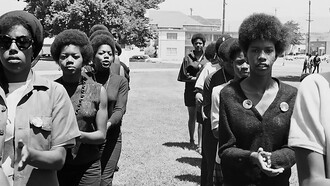I was 15 when I found out Homer was not an actual person. It felt a lot like a “Santa is not real” moment at the time. The idea that this legendary author was actually a symbolic figure rather than a real person felt like the burst of a very exciting fantasy.
I was officially a classics student when we concluded that the Iliad and the Odyssey, both attributed to this Homer, were actually a recollection of an oral tradition from thousands of years before. Studying Homer, and I believe many literature and classics students will agree with me, is a lot like trying to find an answer with little to no evidence at hand. Every year I promise myself I will be the one to uncover the truth, every year I come out empty-handed.
Recently, I found myself buying yet another copy of the Odyssey and was surprised to stumble upon an introduction written by the English Academic, Samuel Butler. In this short essay, he- perhaps in a very stubborn and slightly obstinate way- assures that the Odyssey was in fact written by a teenage girl in Sicily. Immediately hooked, I had to get my hands on his work “The Authoress of the Odyssey” and see for myself what this wilful man was talking about.
Reading his book, I could not help but feel both identified and proud as a woman, given that one of Butler’s main arguments was that because academia is a male-dominated institution, the thought of the writer of this classical book being a woman was never brought to the table. Subsequently, as a classicist myself, I could not help but feel somewhat disappointed by his thesis. Despite bringing to light an interesting, and, I dare say, groundbreaking idea, Butler failed to find strong arguments to sustain his case. His main fault, I believe, was his obstinance. Reading “The Authoress of the Odyssey” was, at times, a lot like reading “this is how it is because I say so!” However, I will point out that the academic did shed an interesting light on an idea I feel many could sense when reading the Odyssey but never structured enough to say:
The Odyssey is one of the very few pieces of Greek Literature remaining with strong female characters.
The Goddess Athena acting as Odysseus’ supporter, Circe guiding him to the Underworld, Calypso, Penelope, and Antikleia are all presented in the poem, not as supplementary characters but as influential, strong, and admirable women who are absolutely necessary for the hero’s journey.
I find that in Ancient Greek Literature, the role of women- divinity or not- is strongly aligned and conditioned by her relationship with a male figure- not surprising for the time. However, with The Odyssey, it seems that it is the other way around. Odysseus is influenced, supported, and guided by these women, without whom he would never have reached his goals.
Another interesting piece of evidence Butler presented was his take on the character of Nausicaa in The Odyssey’s books 6 to 8. Nausicaa was a young girl from Sicily, daughter of King Alcinous and Queen Arete. She is described aiding Odysseus when he arrives at shore and it is hinted in the poem that the young girl is very fond of the hero. In ‘The Authoress of the Odyssey,’ Butler suggests that the author of The Odyssey inserts herself in the poem through the character of Nausicaa. Because the King and Queen’s descriptions are so detailed and, at times, emotional, Butler believes this is evidence that confirms that the character of Nausicaa might have been in fact the author of the poem.
Even though I would very much like to believe Butler’s theory, I, unfortunately, have to say there is still not enough evidence that supports it and too much evidence that discredits it. Like the fact that archeologists proved that Trapani, the city where the writer is supposedly from, did not exist when the Odyssey was composed. Throughout the entire poem, different tones and styles are evident, strongly suggesting the likelihood of multiple authors rewriting it over the years rather than one singular character. In fact, I think I have come to conclude the beauty of the Odyssey is its uncertainty, lack of patterns, and variety of voices. This fact has allowed people for centuries to theorise about it and bring new ideas and ways of reading it to light.
Butler’s work was perhaps not a great academic paper. In fact, most critics agree on that fact precisely. But I will give him credit for identifying a topic that later led academics to review and re-assess the way they read Homer’s work. Writers like Robert Graves, Benjamin Farmington, and Andrew Daley revisited his work and published their own takes on this theory, supporting the base of a theory that had never been thought of before.















